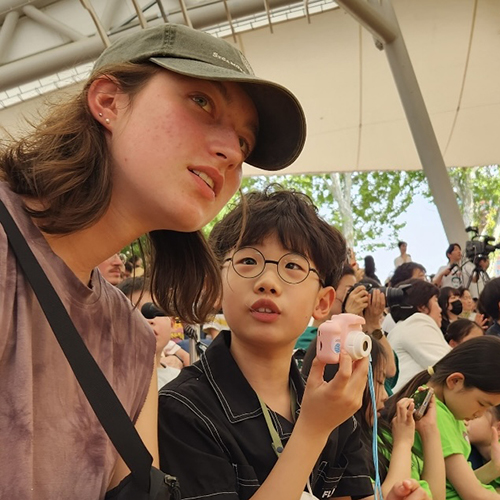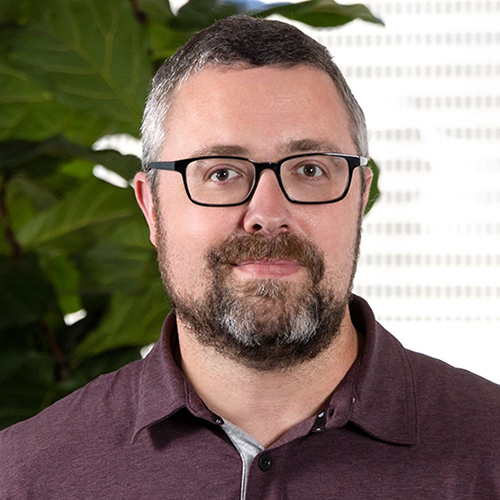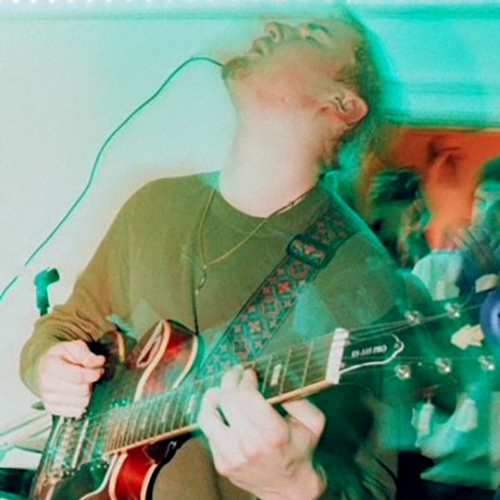The first time Noah Purcell met Supreme Court Justice David Souter, he “couldn’t believe he was sitting in the Supreme Court talking about the law with a Justice.” Now it’s all in a day’s work.
Purcell, ‘02, has been clerking for Justice Souter since August 2008. As a clerk, he helps identify cases meriting the Court’s attention, provides information on cases being heard by the Court, and helps draft opinions on those cases.

It’s a plum job, but not one that was on Purcell’s radar until law school. “If you had asked me as a UW undergraduate whether I would end up clerking at the Supreme Court, I would have laughed,” he says.
Yet Purcell’s path to the Supreme Court can be traced all the way back to his days at Seattle’s Franklin High School, where he was on a mock trial team that won the state championship. He also discovered philosophy at Franklin, thanks to teacher and UW alumnus Shawn Mintek (‘77, PhD, Philosophy).
Purcell’s interest in philosophy grew stronger at the UW, after he took an introductory ethics course taught by Jean Roberts. “That remains one of the best classes I have ever taken anywhere,” recalls Purcell. “I was hooked.” He majored in both philosophy and economics, and spent three years as a member of the UW’s Ethics Bowl team, participating in intercollegiate competitions in ethical analysis. His second year, the team won the nationals.
“Ethics Bowl was one of my favorite experiences at the UW,” says Purcell. “I love thinking about and talking through difficult ethical questions, and this was a wonderful opportunity to do that. Our coaches, David Shapiro (‘96, MA, Philosophy) and Kristen Intemann (‘04, PhD, Philosophy), really pushed us to think hard about the issues. The competition was kind of secondary to me, but it was still fun to win.”
Purcell also took numerous political science courses at the UW and served as a legislative intern in Olympia through the Department of Political Science internship program. He later served as campaign manager for Eric Pettigrew during his bid for state representative and was hired as Pettigrew’s legislative assistant when he won the race.

“Those experiences taught me a great deal about the law and politics,” says Purcell. “I became convinced that a law degree would help me do the kind of public policy work I was interested in. I also learned how to survive on little sleep for long periods of time, which was key in law school.”
That would be Harvard Law School, where Purcell enrolled in 2004. His first year was easier than expected, but his second year, after being selected for the Law Review, was another story. “I stayed up all night at least once a week,” he says.
It was at Harvard that Purcell first considered applying for a Supreme Court clerkship. Hundreds of hopefuls apply each year, with each justice choosing four clerks. Purcell was clerking for the U.S. Court of Appeals when he finally submitted his application. “I clerked for a wonderful judge on the D.C. Circuit named David Tatel,” says Purcell. “I learned more than I can say while working for him.”
So why apply for a second clerkship?
“The Circuit courts hear any case that gets appealed there, so you have a lot of cases, some simple and some complex,” explains Purcell. “The Supreme Court gets to choose which cases to hear, so there are fewer cases but virtually all of them are complex and interesting.”
As a clerk, Purcell is among those who suggest which cases the Court should hear. (The court hears about 80 of the 8,000 appeals submitted each year.) The clerks try to identify cases meriting the Court's attention—usually those with an important question of federal law presented where the lower courts are in disagreement over the question. Clerks also help their Justices prepare for cases by reviewing relevant materials and offering their views, usually in the form of a memo. If a Justice is assigned to write an opinion in a case, a clerk will often write a first draft or offer suggestions on the Justice's draft.
Purcell is thoroughly enjoying the job—and his boss, Justice Souter. “He is wonderful to work for,” says Purcell. “He’s smart, funny, and incredibly down to earth.”
Next on Purcell’s agenda? He’s hoping for a job in the new Obama administration, either in the White House or the Department of Justice. “I’m very interested in government and public policy,” says Purcell. “I hope to never stray too far from that type of work.”
More Stories

Finding Family in Korea Through Language & Plants
Through her love of languages and plants — and some serendipity — UW junior Katie Ruesink connected with a Korean family while studying in Seoul.

Working Toward Responsible AI
Artificial intelligence (AI) is an essential tool at Indeed, a global job-matching and hiring platform. Trey Causey (2009) works to ensure that the company's AI promotes equity and fairness.

Celebrating Contemporary Indigenous Music
Markus Teuton, a musician and citizen of Cherokee Nation, explores contemporary Indigenous music through his academic work and as host of “Indigenous Jazz,” a radio show.